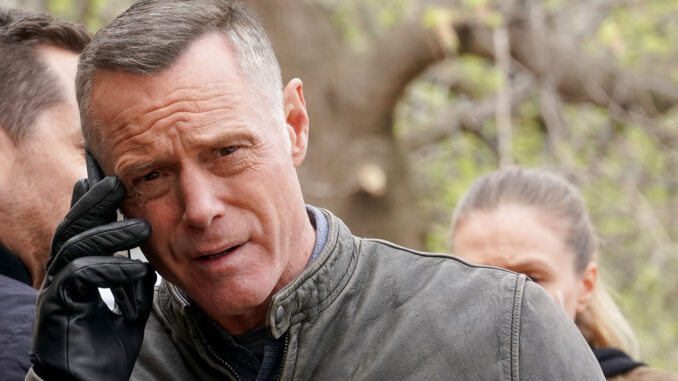
The Unfurling Scroll: Jason Beghe’s Journey from Dogma to Dauntless Authenticity (md07)
Jason Beghe is a man etched by the crucible of experience, his public persona as the gruff, unwavering Hank Voight on “Chicago P.D.” a fitting metaphor for a life journey marked by profound immersion, radical departure, and hard-won authenticity. When Beghe speaks of his life, especially as revealed in candid reflections like those captured in “md07,” he articulates a narrative less about a linear progression and more about an arduous, necessary excavation – a dismantling of a self built on borrowed truths to uncover the rugged, resilient individual beneath. His journey, as he describes it, is a testament to the human capacity for delusion, the courage required for its undoing, and the profound freedom found in embracing one’s own, often messy, truth.
Beghe’s early life and burgeoning acting career suggested a trajectory of conventional success. A promising actor with a magnetic presence, he seemed destined for a steady climb in Hollywood. Yet, beneath the surface, as he often intimates, there was an underlying search for deeper meaning, a yearning for answers that the conventional world perhaps couldn’t provide. This intellectual and spiritual hunger eventually led him to Scientology, an organization he embraced with an intensity characteristic of his personality. For decades, Beghe wasn’t merely a member; he was a true believer, a high-ranking official, and a vocal spokesperson. He speaks of this period not as a casual affiliation, but as a total immersion – a life defined, shaped, and seemingly perfected by the doctrines he diligently studied and promoted. The world, through the lens of Scientology, offered clarity, purpose, and a hierarchical path to ultimate understanding. This was the first grand chapter of his journey: a man fully committed, an architect of his own understanding, albeit one built upon a specific, predefined blueprint.
However, as Beghe recounts, the very foundations he helped to lay began to subtly, then overtly, crack. The seeds of doubt, initially dismissed as personal “case issues” or external “suppression,” grew into an undeniable forest of cognitive dissonance. He speaks of observing inconsistencies, witnessing what he perceived as abuses, and experiencing a profound internal misalignment between the organization’s stated ideals and its practical realities. This wasn’t a sudden epiphany but a slow, painful process of intellectual and emotional untethering. He describes the agonizing struggle of questioning everything he had believed, everything he had publicly championed, and the terrifying prospect of dismantling his entire worldview. The “md07” insights likely highlight the sheer terror of this period – the fear of losing his community, his sense of purpose, and even his identity, all inextricably linked to the very system he was beginning to distrust. It was a journey into an internal wilderness, where familiar landmarks vanished, and the path forward was shrouded in uncertainty.
The act of leaving Scientology, as Beghe powerfully conveys, was not merely a change of affiliation; it was an act of profound self-liberation, albeit one fraught with immense personal cost. He frequently details the alienation from friends and family, the public scrutiny, and the psychological burden of deprogramming himself from decades of indoctrination. This period was a crucible, forging a new man from the ashes of the old. He emerged with a raw, unvarnished honesty, a directness that characterizes his public persona today. His decision to speak out against the organization, an act requiring immense courage and conviction, wasn’t born of malice but, as he explains, from a deep sense of moral responsibility and a desire to help others navigate similar potential pitfalls. He wasn’t just escaping; he was actively rebuilding, re-evaluating, and re-establishing his moral compass on his own terms.
Today, Jason Beghe embodies the wisdom gleaned from this arduous journey. He speaks with an authentic voice, unafraid to acknowledge his past mistakes, his vulnerabilities, and the ongoing process of self-discovery. His life is a testament to the power of critical thinking, the importance of challenging established norms, and the profound liberation that comes from choosing one’s own truth, no matter how uncomfortable or unpopular it may be. The Hank Voight swagger, the intense gaze, the refusal to suffer fools – these are not just character traits, but perhaps echoes of a man who has stared down his own delusions and emerged with a clear-eyed perspective on the world. His life journey, as he articulates it, is a powerful reminder that authenticity is rarely a gift; it is, more often than not, a hard-won prize earned through the courage to question, the resilience to endure, and the unwavering commitment to one’s own, unfurling scroll of truth.
